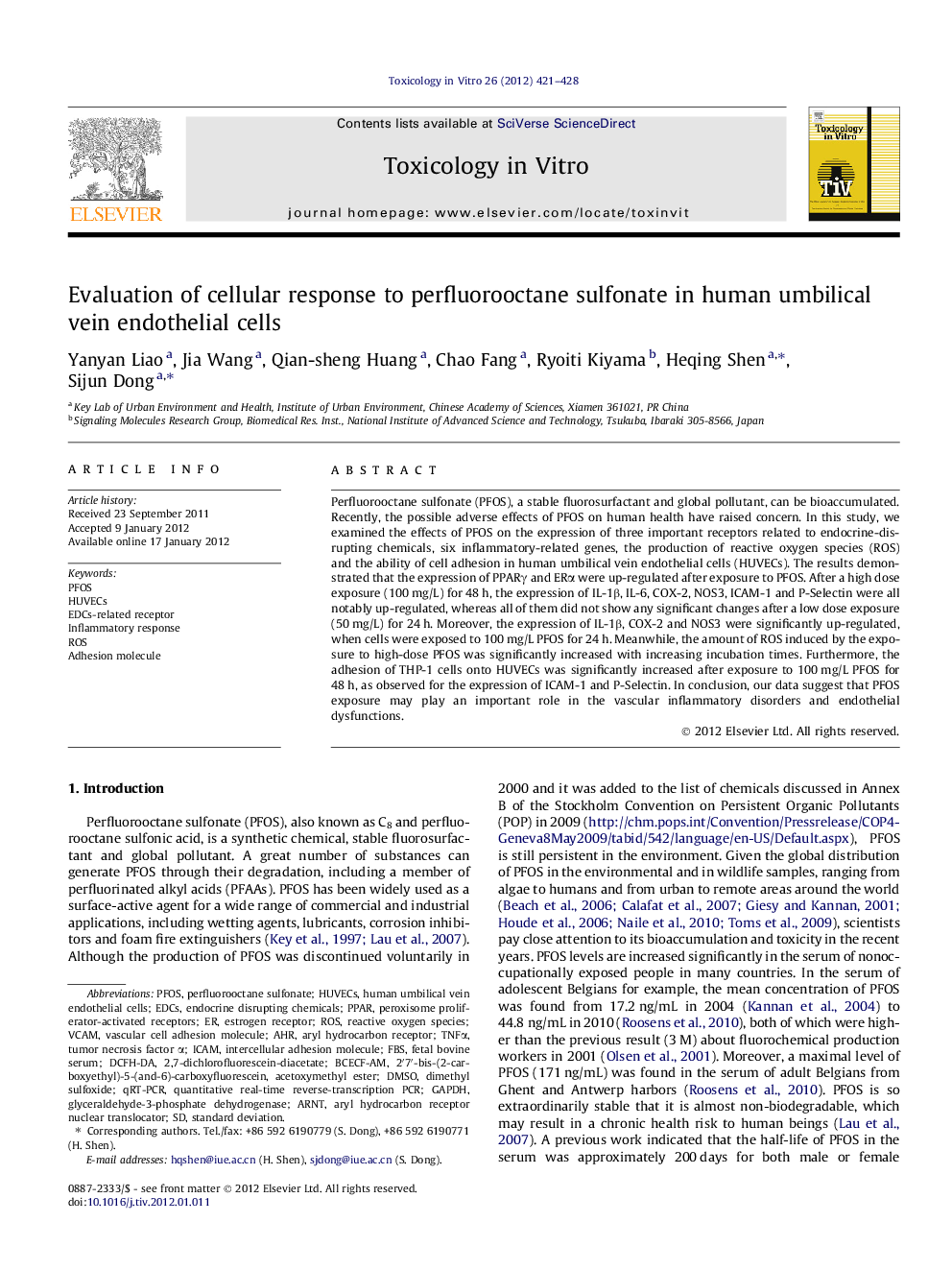| Article ID | Journal | Published Year | Pages | File Type |
|---|---|---|---|---|
| 2602664 | Toxicology in Vitro | 2012 | 8 Pages |
Perfluorooctane sulfonate (PFOS), a stable fluorosurfactant and global pollutant, can be bioaccumulated. Recently, the possible adverse effects of PFOS on human health have raised concern. In this study, we examined the effects of PFOS on the expression of three important receptors related to endocrine-disrupting chemicals, six inflammatory-related genes, the production of reactive oxygen species (ROS) and the ability of cell adhesion in human umbilical vein endothelial cells (HUVECs). The results demonstrated that the expression of PPARγ and ERα were up-regulated after exposure to PFOS. After a high dose exposure (100 mg/L) for 48 h, the expression of IL-1β, IL-6, COX-2, NOS3, ICAM-1 and P-Selectin were all notably up-regulated, whereas all of them did not show any significant changes after a low dose exposure (50 mg/L) for 24 h. Moreover, the expression of IL-1β, COX-2 and NOS3 were significantly up-regulated, when cells were exposed to 100 mg/L PFOS for 24 h. Meanwhile, the amount of ROS induced by the exposure to high-dose PFOS was significantly increased with increasing incubation times. Furthermore, the adhesion of THP-1 cells onto HUVECs was significantly increased after exposure to 100 mg/L PFOS for 48 h, as observed for the expression of ICAM-1 and P-Selectin. In conclusion, our data suggest that PFOS exposure may play an important role in the vascular inflammatory disorders and endothelial dysfunctions.
Graphical abstractFigure optionsDownload full-size imageDownload as PowerPoint slideHighlights► PFOS enhances expressions of two EDCs-related receptors and six inflammatory-related genes in HUVECs. ► PFOS induces the generation of ROS in HUVECs in a time-dependent manner. ► The adhesion of THP-1 cells onto HUVECs was significantly increased after exposure to PFOS.
